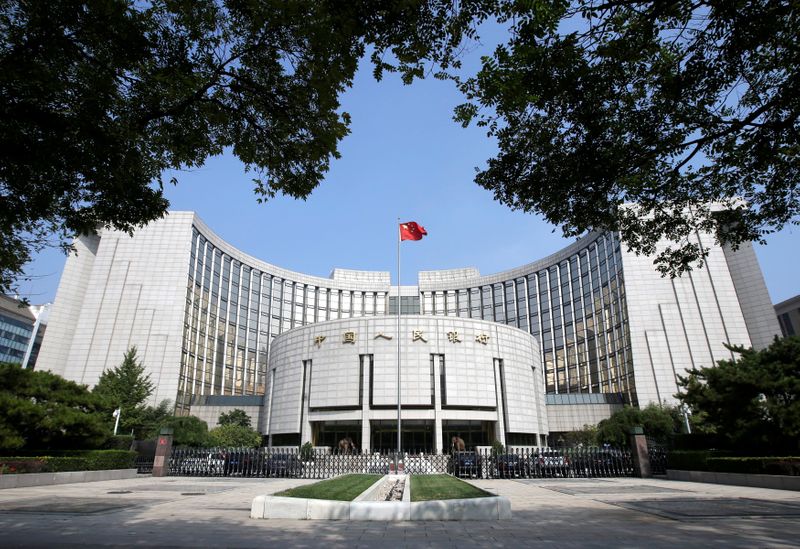By Stella Qiu and Kevin Yao
BEIJING (Reuters) -China will cut the amount of cash that banks must hold as reserves, releasing around 1 trillion yuan ($154.19 billion) in long-term liquidity to underpin its post-COVID economic recovery that is starting to lose momentum.
The People's Bank of China (PBOC) said on its website it would cut the reserve requirement ratio (RRR) for all banks by 50 basis points (bps), effective from July 15.
The world's second-largest economy has largely rebounded to its pre-pandemic growth levels, driven by a surprisingly resilient export sector. But growth is losing steam and smaller firms are bearing the brunt of a recent surge in raw material prices.
Many analysts believe pent-up COVID demand has now peaked and that growth rates will start to moderate in the second half of the year, weighed down by weakening exports, surging producer price inflation and Beijing's continued crackdown on the property market.
"I see it as more or less a fine-tuning rather than a signal that there is more monetary easing coming," said Elwin de Groot, head of macro strategy at Rabobank.
"It was already signalled to some extent because we had seen some tightening in Chinese money markets, and this is basically to alleviate these pressures."
HELP TO REPAY LOANS
The PBOC said its prudent monetary policy remained unchanged. Part of the liquidity released will help financial institutions to repay maturing medium-term lending facility (MLF) loans, and will also help ease liquidity pressure caused by tax payments, it said.
The central bank said the weighted average RRR for Chinese financial institutions would fall to 8.9% after the cut.
Banks that are subject to an RRR of 5% will be exempted from the new cut.
The PBOC last cut the RRR in April last year, when the Chinese economy was still badly affected by the coronavirus crisis. As the economy staged its strong rebound, the PBOC shifted to a moderately tightening bias.
China's cabinet said on Wednesday that authorities would use timely cuts in RRR to help small firms cope with the negative impact from rising commodity prices, in an announcement that surprised the markets.
China's May factory gate prices rose at their fastest annual pace in over 12 years in June due to surging commodity prices. Coupled with supply chain issues, including a global shortage of semiconductors, industrial output slowed for the third straight month in May.
Underlying demand remains weak in China. Consumer inflation, which eased in June, still fell way short of the government's target of around 3%.
The economy is widely expected to grow more than 8% this year, against the government's modest growth target of over 6%, suggesting there is no big pressure to step up easing.
A former PBOC official said earlier this week that Beijing should guide market interest rates lower to support economic growth and ease funding pressures on local governments.
($1 = 6.4854 Chinese yuan renminbi)
